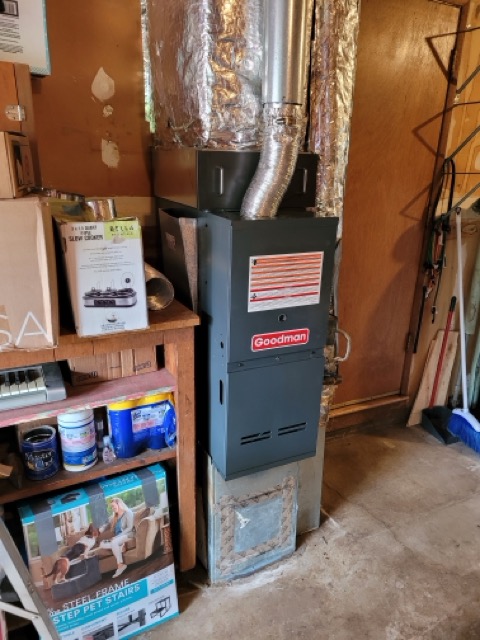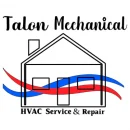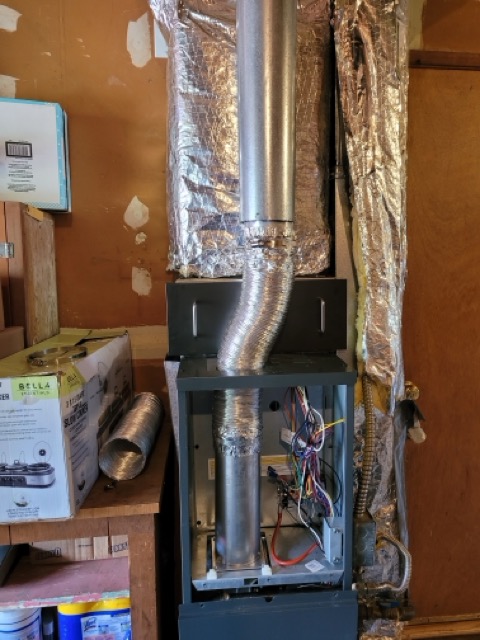When to Upgrade: Signs It's Time for a Heating Replacement

Don't Let Fall Weather Surprise You
As the colder months approach, ensuring your heating system is in top condition becomes a priority for many homeowners. A reliable heating system is crucial for maintaining a comfortable and safe indoor environment during winter. However, like any other mechanical system, your heating unit has a limited lifespan. Over time, it may become less efficient, more prone to breakdowns, and costlier to operate. Recognizing when it’s time to upgrade your heating system can save you money, improve your home’s comfort, and prevent unexpected breakdowns during the coldest months of the year.
In this comprehensive guide, we’ll discuss the key signs that indicate it’s time to replace your heating system, the benefits of upgrading, and what to consider when choosing a new system.
Signs It’s Time to Replace Your Heating System
Age of the System
One of the most straightforward indicators that your heating system may need replacing is its age. Most heating systems, including furnaces and heat pumps, have an average lifespan of 15-20 years. If your system is approaching or has surpassed this age range, it may be time to consider an upgrade. Older systems are less efficient, more prone to breakdowns, and may no longer meet modern energy standards.
Rising Energy Bills
If you’ve noticed a steady increase in your energy bills, it could be due to an inefficient heating system. As heating systems age, they lose their efficiency, meaning they require more energy to heat your home to the desired temperature. An increase in energy costs, especially when there hasn’t been a significant change in usage or energy rates, is a strong indicator that your system is struggling to perform efficiently.
Frequent Repairs
Another clear sign that it’s time to replace your heating system is the frequency of repairs. While occasional repairs are expected, especially as the system ages, frequent breakdowns can become costly and inconvenient. If you find yourself calling a technician multiple times a year and the repair costs are adding up, investing in a new system might be a more cost-effective solution.
Inconsistent Heating
Uneven heating or inconsistent temperatures throughout your home can be a sign that your heating system is no longer able to distribute heat evenly. You may notice some rooms are warmer than others or that your system struggles to maintain a consistent temperature. This could be due to issues with the system’s efficiency, ductwork problems, or simply an aging system that can no longer handle the demands of your home.
Strange Noises
While it’s normal for heating systems to make some noise, unusual or loud sounds such as banging, rattling, or squealing could indicate serious issues. These noises often point to mechanical problems, such as loose or damaged components, that can lead to system failure if not addressed. If strange noises persist even after repairs, it may be time to consider a replacement.
Poor Indoor Air Quality
Your heating system plays a crucial role in maintaining indoor air quality. Over time, older systems can accumulate dust, mold, and other allergens, which can be circulated throughout your home, leading to poor air quality. If you’ve noticed an increase in dust, respiratory issues, or allergy symptoms among household members, your heating system may be to blame.
Visible Signs of Wear and Tear
Physical signs of wear and tear on your heating system, such as rust, cracks, or corrosion, are indicators that the system is deteriorating. These issues can compromise the system’s performance and safety. For example, cracks in the heat exchanger of a furnace can lead to dangerous carbon monoxide leaks.
Carbon Monoxide Detector Alerts
If your carbon monoxide detector goes off, it’s a serious warning sign that your heating system could be malfunctioning. Carbon monoxide is a colorless, odorless gas that can be deadly. A cracked heat exchanger or other malfunction in a gas furnace can cause carbon monoxide to leak into your home. If this happens, turn off your system immediately and contact a professional. Even if repairs are possible, it’s often safer to replace the system entirely.
Benefits of Upgrading Your Heating System
Upgrading your heating system offers numerous benefits that go beyond just maintaining a comfortable home. Here are some of the key advantages:
Improved Energy Efficiency
Newer heating systems are designed to be more energy-efficient, using advanced technology to provide the same level of heating while consuming less energy. This means lower energy bills and a reduced environmental footprint. Look for systems with high Annual Fuel Utilization Efficiency (AFUE) ratings for furnaces or high Seasonal Energy Efficiency Ratio (SEER) ratings for heat pumps.
Enhanced Comfort
Modern heating systems offer better temperature control and more consistent heating throughout your home. Many new systems come with features such as variable-speed blowers, which adjust airflow to maintain a consistent temperature, and advanced thermostat options, including smart thermostats that allow for precise control and scheduling.
Reduced Maintenance and Repair Costs
A new heating system will require fewer repairs and less maintenance, saving you money and reducing the inconvenience of frequent service calls. New systems are also backed by warranties, providing peace of mind and protection against unexpected repair costs.
Quieter Operation
Advances in technology have made modern heating systems much quieter than older models. If your current system is noisy, upgrading to a new system can provide a quieter and more pleasant home environment.
Increased Home Value
Upgrading your heating system can increase the value of your home. Prospective buyers are often willing to pay more for a home with a new, energy-efficient heating system, knowing they won’t need to worry about costly repairs or replacements in the near future.
Better Indoor Air Quality
New heating systems often come with improved filtration options and better humidity control, which can significantly enhance indoor air quality. This is especially important for households with allergy sufferers or individuals with respiratory issues.
What to Consider When Choosing a New Heating System
When it’s time to replace your heating system, it’s important to choose the right system for your home. Here are some factors to consider:
System Type
The most common types of heating systems are furnaces and heat pumps. Furnaces, which can run on gas, oil, or electricity, are popular in colder climates. Heat pumps, which can provide both heating and cooling, are more energy-efficient and are ideal for milder climates. Consider your climate, energy costs, and personal preferences when choosing a system type.
Energy Efficiency
Look for systems with high energy efficiency ratings. For furnaces, the AFUE rating indicates the system’s efficiency in converting fuel to heat. For heat pumps, the SEER rating measures cooling efficiency, and the Heating Seasonal Performance Factor (HSPF) measures heating efficiency. Higher ratings mean better efficiency and lower energy costs.
Size and Capacity
Choosing the right size system is crucial for efficiency and comfort. A system that is too small will struggle to heat your home, while an oversized system will cycle on and off frequently, leading to higher energy costs and wear. A professional HVAC technician can perform a load calculation to determine the right size system for your home.
Features and Technology
Modern heating systems come with a variety of features that enhance comfort and convenience. Consider options like variable-speed blowers, smart thermostats, and zoning capabilities that allow you to control the temperature in different areas of your home independently.
Cost and Budget
While the initial cost of a new heating system can be significant, it’s important to consider the long-term savings from lower energy bills and reduced maintenance costs. Many utility companies offer rebates or incentives for installing energy-efficient systems, which can help offset the upfront cost.
Installation and Warranty
Professional installation is key to ensuring your new heating system operates efficiently and reliably. Choose a reputable HVAC contractor with experience in installing the type of system you’ve selected. Additionally, look for systems that come with strong warranties to protect your investment.
Is it Time for a New Heating Replacement or Upgrade?
Knowing when to replace your heating system is crucial for maintaining a comfortable, safe, and energy-efficient home. By recognizing the signs of a failing system, such as frequent repairs, rising energy bills, and inconsistent heating, you can avoid the inconvenience and expense of a mid-winter breakdown. Upgrading to a modern, energy-efficient heating system offers numerous benefits, including improved comfort, lower energy costs, and enhanced indoor air quality.
When it’s time to upgrade, consider factors such as system type, energy efficiency, and features to choose the best heating system for your home. Don’t forget to work with a professional HVAC technician to ensure proper installation and long-term performance. With the right system in place, you can enjoy a warm, comfortable home all winter long.
A Top Rated HVAC Contractor





